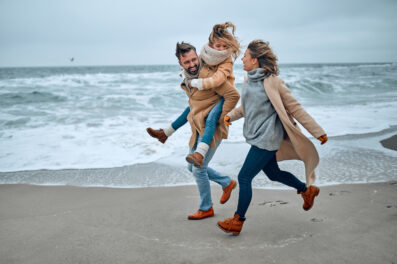The history of Bonfire Night
Bonfire Night is actually a celebration of the infamous failed Gunpowder Plot in 1605. Guy Fawkes, along with 12 other men, planned to blow up the House of Parliament in an attempt to re-establish Catholic rule in England. However, the men were betrayed and their plan was uncovered, much to the delight of King James I who was the intended target. November 5 was made a national day of celebration, and it was compulsory to celebrate up until 1959 in the UK!
To this day, many of us still celebrate November 5, however, it’s more of an opportunity to huddle around a cosy bonfire, marvel as fireworks light up the night sky, and tuck into some tasty treats. But, with all these explosions and open fires, keeping yourself and your children safe is the number one priority, whether you’re at a venue or in your own back garden. So, here are our top tips for keeping your kids safe on Bonfire Night.
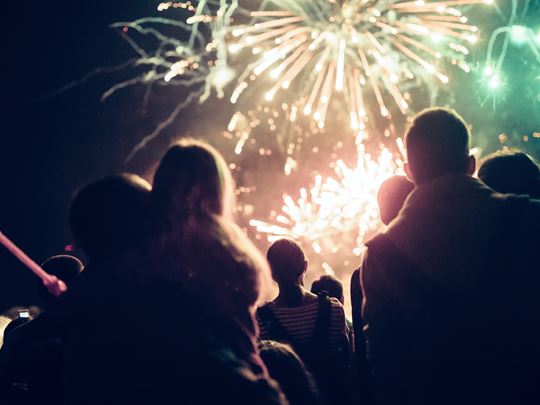
Safety tips for Bonfire Night at home
- Never let children handle fireworks. They are extremely dangerous and should only be handled by a trustworthy adult. Once a firework is lit, you should stand well away and enjoy the explosion of colours from afar.
- Keep anything flammable locked away. Many teenagers feel a need to rebel and push boundaries. Especially foster children in care who may struggle with authority due to being let down by their primary caregivers early in life. This defiance could lead to them wanting to let off fireworks at home or in school, which is incredibly dangerous. In the days leading up to Bonfire Night, make sure your firelighters, fireworkers and sparklers are locked away and out of reach to prevent them from getting in trouble.
- Sparkler safety. They look so pretty it’s easy to forget they can cause harm if not handled correctly. Anybody holding a sparkler should wear gloves, keep them well away from people’s faces and always dispose of them properly in water or sand.
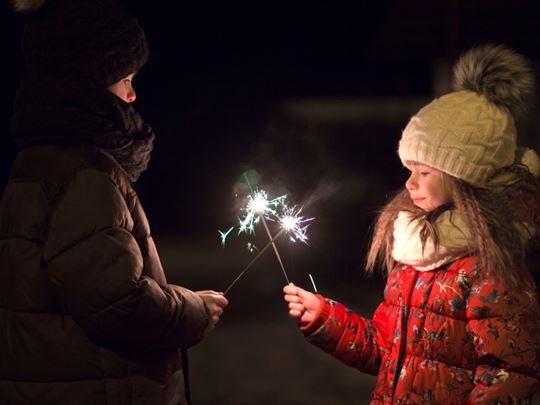
- Bonfire boundaries. A bonfire should be positioned well away from any trees, fences or sheds, and should have a proper cordon surrounding it. Even if you plan on only having a small bonfire in your back garden, fire can easily get out of control and spread. Check out your local area to see if there’s a public bonfire to go to instead, which is manned by safety professionals.
- Keep your distance. If your garden does allow for the space to light a bonfire and let off fireworks, you should ensure that everybody stands at a safe distance and children are supervised at all times.
- Be prepared to extinguish your bonfire. It might sound dramatic to say ‘prepare for the worst’, but if your bonfire does get out of hand, you’ll be thankful you planned in advance. Have a fire extinguisher or buckets of water and buckets of sand on standby should anything go wrong.
- Stick to soft drinks. As a parent, your safety ensures your child’s safety. This means you need to be alert, vigilant and sensible. Mixing alcohol with fireworks and open flames is not a good recipe, so keep the festivities alcohol-free with a batch of delicious hot chocolate instead.
- Ask your children if they want to celebrate. Luckily, bonfire night isn’t a mandatory celebration anymore, so you can decide as a family whether to participate or not. Some children, especially those with autism or children in care who have experienced trauma, might find bonfire night extremely distressing. The loud, unpredictable bangs could trigger flashbacks from childhood abuse, or autistic children could experience sensory overload due to the different smells, noises and colours. You may want to ask neighbours if they plan on letting fireworks off so you can arrange to be out of the house during those hours. Sometimes, keeping your child safe on Bonfire Night means removing them from the celebrations altogether, and that’s absolutely okay.
Safety tips for attending a Bonfire Night event
- Have an agreed meeting place. The idea of losing your child in a sea of people is not something anybody wants to think about. However, this is a real possibility so it’ll pay to think about it now and plan ahead. Scope out the park or venue in the days leading up and agree a location to meet at if your child gets lost.
- Wear distinct clothing. If your child does get lost, there’s a better chance of them being found if they’re wearing a distinct item of clothing that people can identify them with.
- Wrap up warm. When you’re at your local Bonfire Night event, you can’t nip inside the house to grab another blanket if your children are feeling the chill. So, before you venture out, ensure your kids are wrapped up in plenty of layers to prevent them catching a cold or getting sore, numb fingers and toes.
- Use headphones for little ones and babies. From the loud bangs to the sounds of funfair rides and DJ music, Bonfire Night events can really put your senses to the test! For under 5s, we recommend noise cancelling headphones to keep them calm and allow them to enjoy the mesmerising fireworks without all the stressful sounds.
Following these tips will help make sure your Bonfire Night is a magical time for all the family. And at FCA, that’s all we want for our foster children – magical moments with a loving family. If you think you could open up your heart and home to a vulnerable child in need, we’d love to hear from you. There are many children who desperately need a home, and yours could be the perfect one for them. Please get in touch today, or download our Beginner’s Guide to Fostering a Child to find out everything you need to know about the process and what’s involved.
Are you thinking of fostering?
Download the FCA’s complete beginner’s guide to fostering a child. Find out more on how to foster a child and the process involved.

